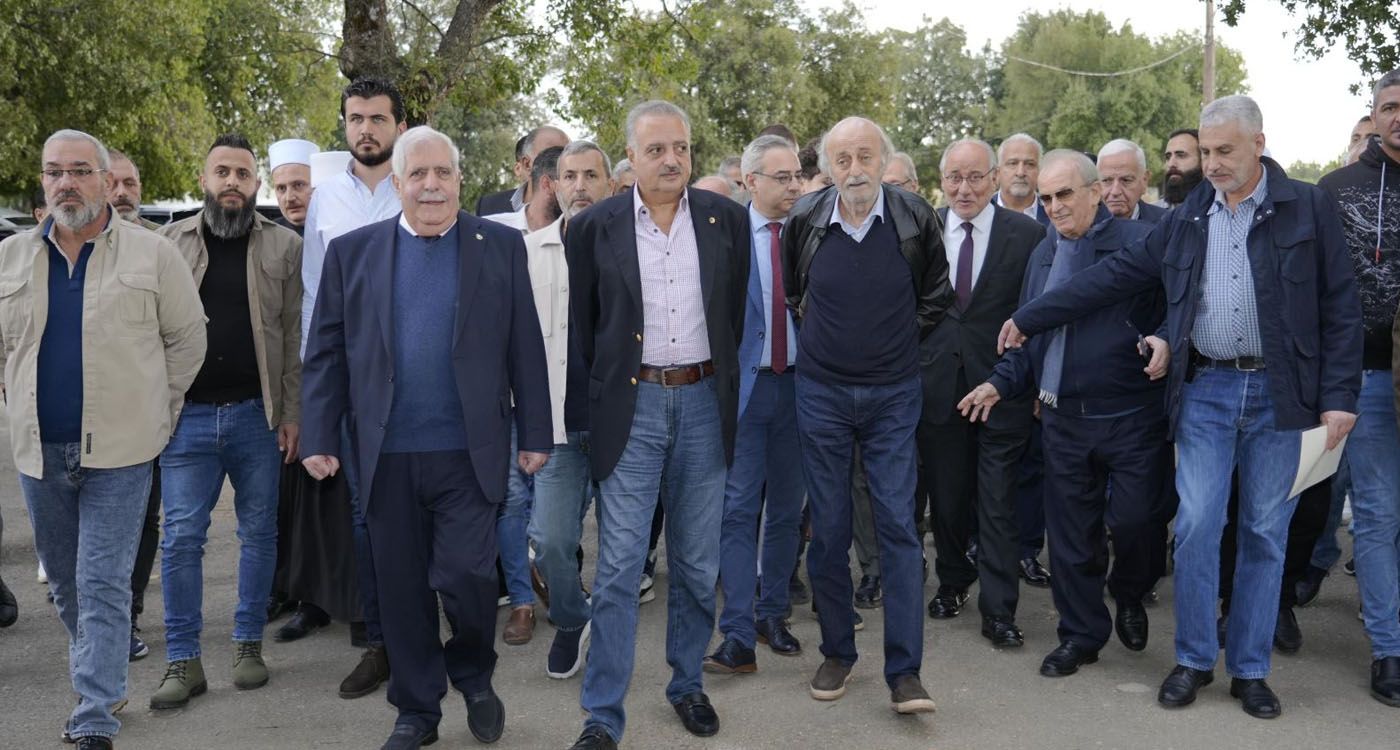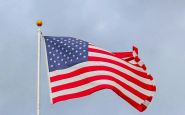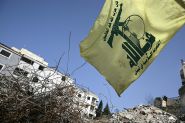
Druze spiritual and political leaders held a meeting on Saturday in Baadaran, located in the Druze heartland of the Chouf Mountain, during which they underscored the importance of safeguarding national unity and coexistence amid concerns of social tensions between the displaced and their hosts.
The raging conflict between Hezbollah and the Israeli army triggered massive displacement of residents from South Lebanon who sought shelter in safer areas such as Mount Lebanon and the Chouf area.
Speaking after the meeting, the spiritual leader of the Druze community, Sheikh Akl Sami Abi al-Mona, called for closing national ranks “in the face of the dangers threatening Lebanon.”
“We condemn the relentless Israeli aggression and express our solidarity with the displaced, whom we consider to be our guests,” said Abi al-Mona, adding, however, “We do not accept any security blunders, no matter where they come from. We work with the army and security forces to guarantee stability.”
Sheikh Akl stressed the importance of the “principle of hospitality,” while warning against turning “our land and homes” into commodities that can be bought and sold, in an implicit allusion to the sale of properties to outsiders.
“Once the war is over, the displaced will return to their homes, God willing, which is why we are calling for a ceasefire and for the army to be deployed in the south of the country.”
For his part, former Progressive Socialist Party (PSP) leader Walid Joumblatt cautioned that “the war seems to be going on for a long time. We must therefore be ready to provide the maximum number of services to both the displaced persons and residents.”
MP Marwan Hamadeh from the PSP-led Democratic Gathering Bloc revealed to This is Beirut that the aim of today’s “Druze meeting” is to “strengthen the social fabric to prevent the massive presence of displaced people in the mountain from creating sensitivities, because we know that there is already impatience and touchiness.”
While the Druze community feels that the country is under real threat and that it is directly concerned, Hamadeh stressed that the message of tolerance and national coexistence is intended for both the hosts and the displaced.
“We don't want any friction or tensions. It’s a message in two directions: As we respect the laws of hospitality, those who've come to us should respect these laws as well, especially when it comes to safety, because otherwise they would be exposing themselves (to danger) and us too.”
Hinting at the fact that some of the displaced carry personal arms, Hamadeh noted that “many precautions would be taken” to maintain security, adding, “We must not lose sight of the fact that the main role must remain with the army and the security forces. As soon as there's an incident, we call in the army and the military intelligence services.”



Comments